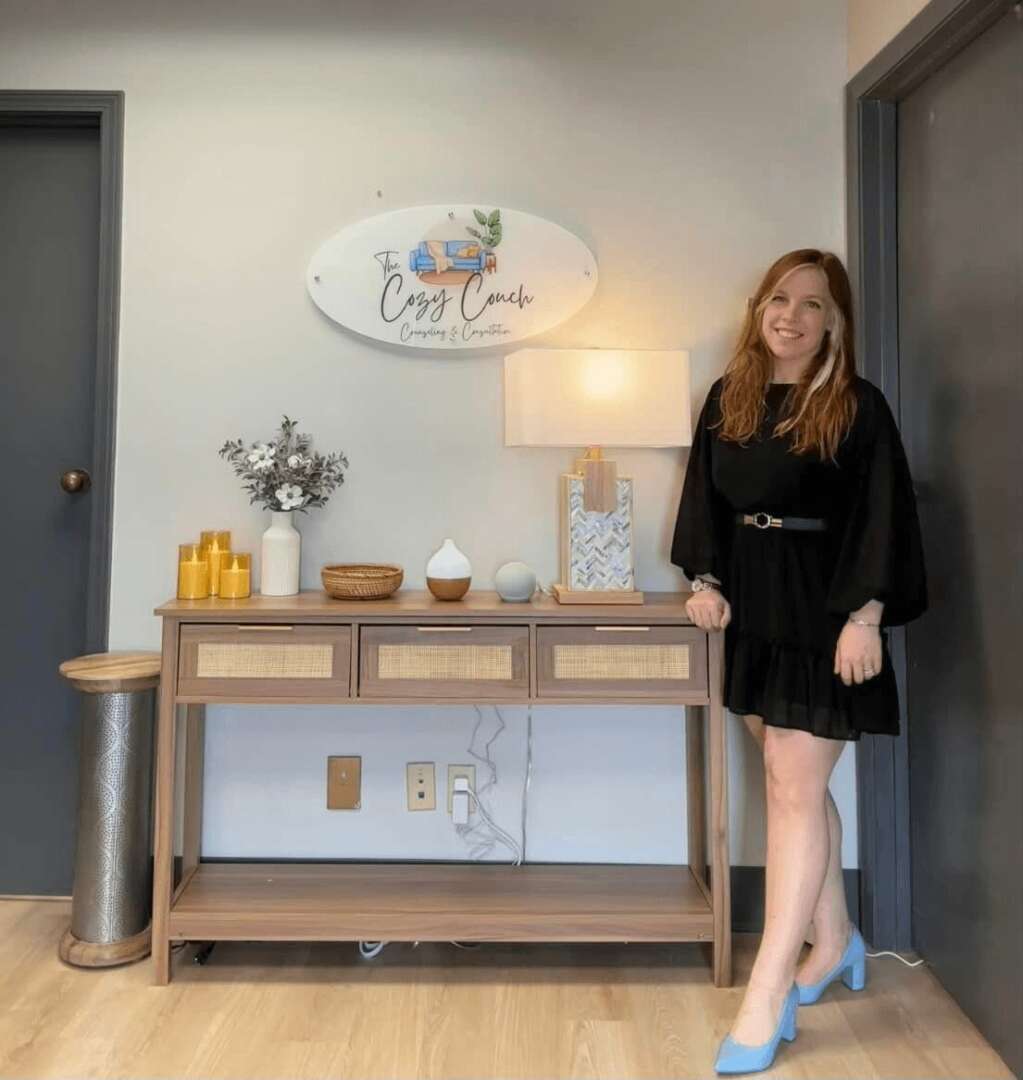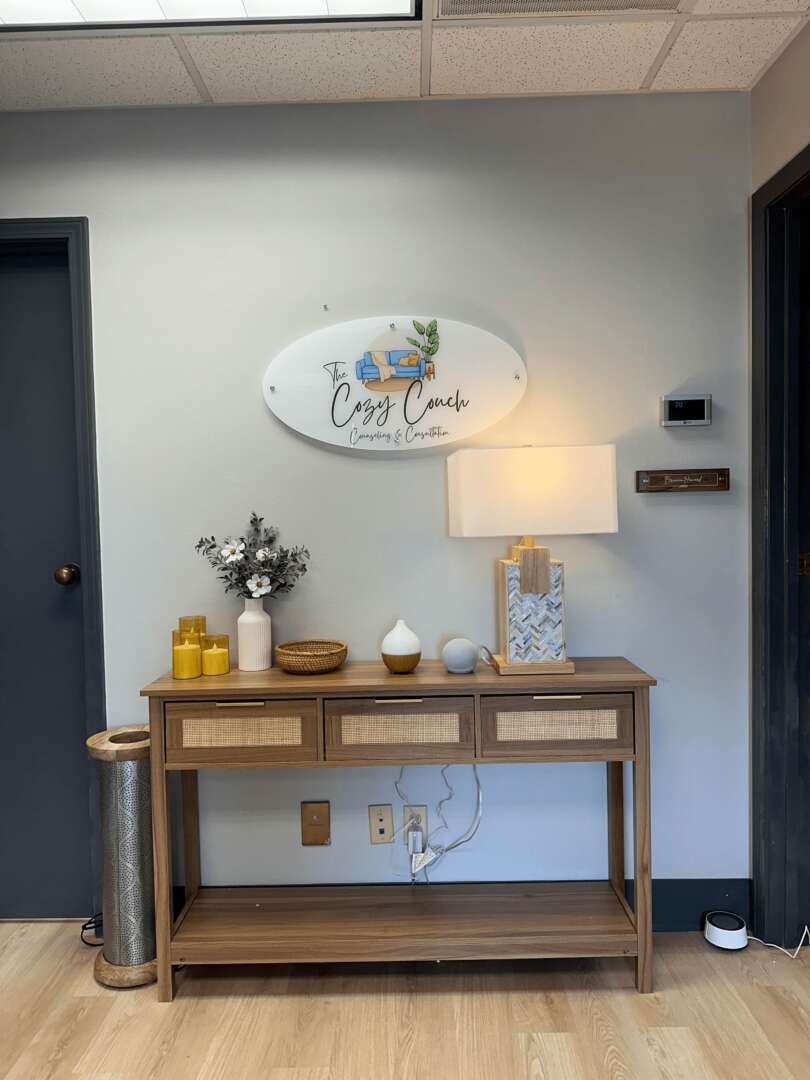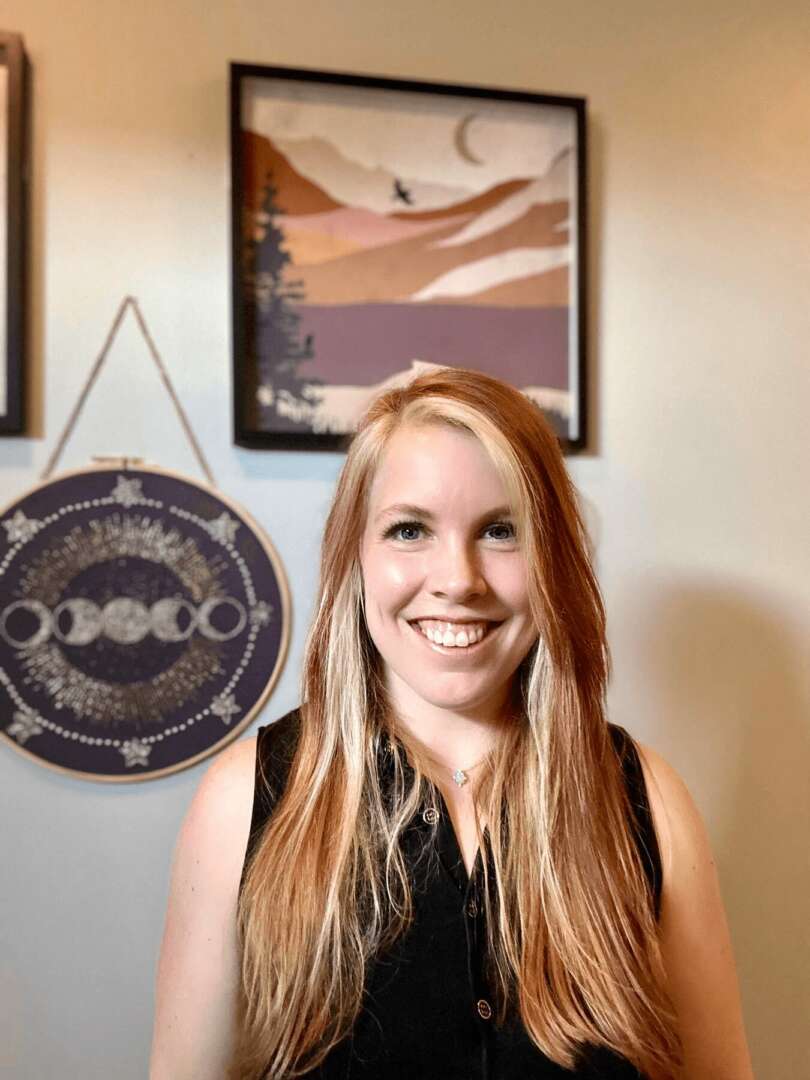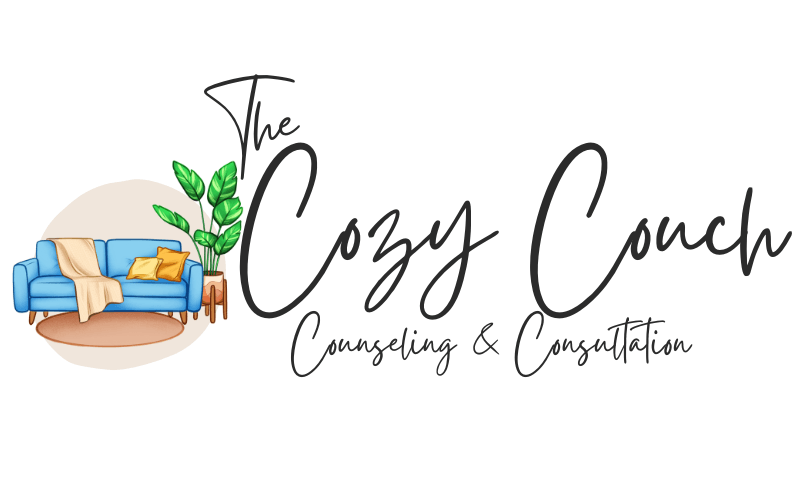We recently connected with Stephanie Townsend, LMSW, CCTP, ART Practitioner and have shared our conversation below.
Hi Stephanie, thanks for joining us today. What’s the best advice you ever gave to a client? How did they benefit / what was the result? (Please note this response is for education/entertainment purposes only and shouldn’t be construed as advice for the reader)
I work really hard to provide “unique-to-you” treatment plans for each client who walks through my door, but that doesn’t mean that I don’t see a lot of the same recurring patterns, traumatic backgrounds, counterproductive thinking tracts, and anxious thought traps. The most common struggles or reasons for starting therapy I see within my clients are 1. a lack of healthy boundaries, 2. complete blockages of awareness of their physical and emotional responses to day-to-day things, and 3. missing senses of empowerment. Once you experience trauma, your brain has the ability to chemically change and physically create or no longer use specific neural pathways. This response is solely for protection and survival, the brain isn’t able to think into the future about how those adopted behaviors and thought patterns might prove to be huge barriers in the future, it only knows how to protect at the moment and does not tend to go back and “scan and correct” once the danger is over. So to answer the question, I’ll expand a bit more on the three concepts I listed.
1. Most of us grow up with an understanding that boundaries are mean, when I first bring up boundaries in a session with a new client, they typically always pause and say something to the effect of, “Well, I don’t want to cut them off.” It’s always been interesting to me that boundaries are synonymous with no contact. I advise that boundaries are ways to nurture the relationship and make known the ground rules you have to keep a healthy relationship. You’re actually communicating, “I love you so much, that I want to change how we interact so that we can continue a healthy relationship, not blow up and leave a toxic one.” We get our earliest understandings of boundaries from our caregivers at a young age, so if you ever remember as a kid trying to say that you didn’t like something or didn’t want to do something, or if you had a bad day and were grumpy, and you were met with negative emotional reactions like, “You can’t disrespect me like that,” “I don’t care what you think/feel,” or I guess I’m just the worst _____ ever!” Your early understanding of boundaries is not healthy.
2. I’m guilty of this myself from time to time but it is staggering how many people experience their lives, going months, sometimes years, without ever checking in with their body. They only ever become aware of their body in extreme pleasure, anxiety attacks, or major medical health concerns, otherwise, they aren’t aware of any other communication going on in their body. I think that the general public has an understanding that everything “happens in the brain” and the body just reacts to the signals, but that couldn’t be further from the truth. We now know that trauma is stored in the body. We know this by certain smells taking us back to a specific memory, if someone grabs us harshly or walks up quickly behind us, many of us may flinch, and specific sounds might make us more uneasy or on edge. If you had access to my therapy office you would hear me ask, “Where do you feel that statement in your body?” probably more than 50 times a day. I ask that question often in order to redirect people back to their bodies after tough statements, the more awareness we have of our body, the more we have access to regulation and safety in difficult moments.
3. As a trauma therapist, not many of the people who come to me have spectacular childhoods and healthy senses of self. A lot of the work we do in trauma therapy is rebuilding a sense of self-trust and empowerment to be able to set boundaries, self-regulate, make hard decisions, etc. Trauma is largely a loss of control, if you have experienced trauma, you have had autonomy taken away from you, a sense of choice, your emotions or thoughts didn’t matter, so the brain had to take in that thought tract to keep you safe. Once we flash forward to today, we often get frustrated with our abilities to freeze at the moment, look to escape high emotional moments, or completely shut down. Creating a sense of empowerment allows us to acknowledge how uneasy we may feel but have a sense of self-trust that allows us to stick through it and maintain the control that was once taken from us.

Stephanie, before we move on to more of these sorts of questions, can you take some time to bring our readers up to speed on you and what you do?
I’m a trauma therapist who has the desire to learn as much as humanly possible about emotional and physical responses to trauma and be able to bring that knowledge to my clients in ways that produce long-lasting and meaningful change for themselves and their lives. As a kid, I went through a string of traumatic events, which created the angsty teenager who ended up in therapy for the first time. The two therapists I had as a teenager are a direct reason I am a therapist today, I wanted to offer the same feeling of change and empowerment they were able to offer to me.
I don’t believe I necessarily solve problems for anyone, I think that would greatly undermine the work my clients do on themselves and for themselves on a weekly basis. However, I do provide a soft place to land after a tough week working with PTSD responses, I provide tools to help them regulate themselves into and out of hard conversations and emotions, I ask questions that possibly have never been asked of them before to allow them further self-knowledge, and I am able to educate clients on how their thoughts and behaviors are normal and in ways, self-protective, but it’s also okay to want differently for themselves.
Personally, I’m most proud of the type of therapy I’m able to offer and I suppose the brand I’m building for myself and my practice. In the therapy world, I refer to myself as a somatic therapist, which means I place a lot of focus and emphasis on the body. I love my “overly self-aware” clients or the people who tend to know what “their issues are” but can’t seem to create change. Their bodily reactions are typically dying to be recognized and honored, which is something I’m happy to be able to lead people to. I want to continue building on the idea of being a highly trained, highly effective trauma therapist.

Training and knowledge matter of course, but beyond that what do you think matters most in terms of succeeding in your field?
I think a genuine self-belief that you yourself, have a lot to offer. I think a lot of therapists can experience anxiety that the market might be “over-saturated” or that since you’re not the only therapist in town, you won’t be successful. I struggle with those thoughts too from time to time but I have to remind myself that only 30% of the adult American population have seen a therapist before and only 17% of teenagers have seen a therapist. I don’t know about you, but I don’t believe that number is nearly high enough for true societal healing. If therapists can remember that people will choose to work with them, simply because they are themselves, the success will come, and we need you in the field!

Do you think you’d choose a different profession or specialty if you were starting now?
I wouldn’t change a single thing about the profession I’ve chosen. I personally believe that there are people who live to work and there are people who work to live, and of the people who live to work, they have a “most correct fit” for a career choice that they need to explore and find. I believe I’m exactly where I need to be, in the exact profession I’ve always been destined for, and providing care that people are actively looking for.
Contact Info:
- Website: https://www.thecozycouchcounseling.com
- Instagram: @TheCozyCouchCousneling
- Facebook: The Cozy Couch Counseling & Consultation




Image Credits
Self.


